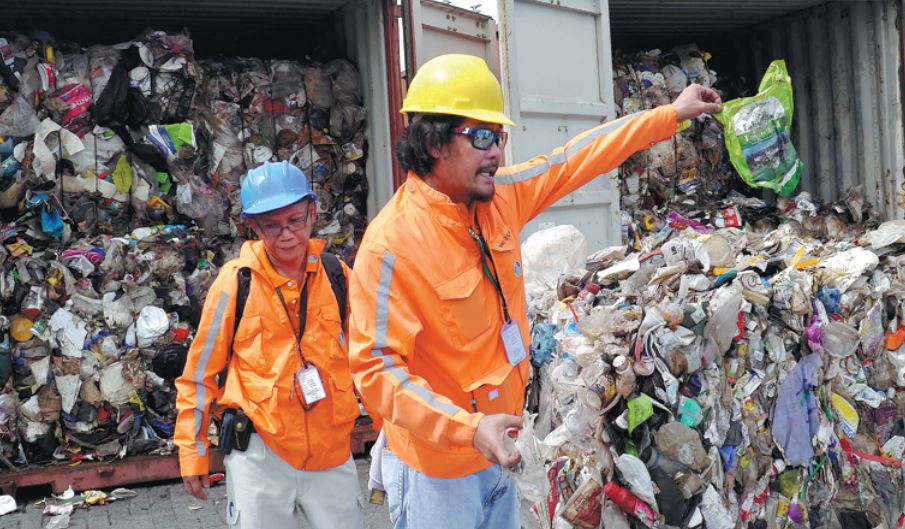Southeast Asia battles flood of waste imports


The United Kingdom doubled its exports of plastic waste to Malaysia between January and April last year to 30,318 tons, according to UK export data.
It also increased such exports to Vietnam by 49 percent over the same period, and began sending plastic waste to Thailand for the first time in two years.
Heng Kiah Chun, a campaigner at Greenpeace Malaysia, said the country's plastic recycling industry became overwhelmed by the influx and could not accommodate the waste in a sustainable way.
Last year, Greenpeace reported numerous instances of dumping, open-air burning and other illegal practices contributing to pollution.
The environmental organization discovered 45 large dumping sites, with waste originating from 12 countries in Europe as well as Australia, New Zealand, Saudi Arabia, Argentina, the Philippines, the US and Canada.
Some people living in villages near sites where waste was burned became ill after prolonged exposure to toxic smoke, according to regional reports.
Despite there being an import ban in place, Malaysia's environment ministry reported last month that some foreign recycling exporters were intentionally mislabeling shipments and sending waste to the country illegally.
On May 28, at a news conference in Port Klang, a major Malaysian port, Yeo, the environment minister, stood in front of a shipping container full of plastic waste that had arrived illegally from Australia.
"When China banned plastic waste imports, most of this waste was sent to developing countries, and no one was tracking it to make sure it was disposed of properly," Yeo said.
Simon Ellin, chief executive of the UK Recycling Association, said that if done correctly, the trade in waste products can be beneficial for both exporters and importers.
"We shouldn't let a minority of companies that operate in violation of international and domestic laws undermine the legitimate trade of a secondary commodity," Ellin said. "Malaysia has itself acknowledged the benefits to its manufacturing sector of importing recyclable materials that can be turned into new products there."
But Ellin said the contents of some containers and the conduct of some exporters highlight the need for reform.
He said such waste materials are so "variable and difficult to separate" that recyclers face the stark choice of whether to stop collecting them altogether or to incinerate them.
"The longer-term solution, of course, is for the producers not to produce them in the first place," he said. "A trip around any supermarket fruit and vegetable aisle has me shaking my head in disbelief at the plethora of unnecessary plastics 'protecting' the produce."
Changes to the global waste trade are on the way. Last month, 187 countries agreed to add plastic waste to the Basel Convention, a treaty that regulates the movement of hazardous materials worldwide.
A resolution, which will take effect next year, will result in some forms of plastic waste requiring prior consent from receiving countries before it is traded. The US, which is the world's biggest exporter of plastic waste, is not party to the convention.
Beau Baconguis, Asia Pacific coordinator for campaign group Break Free From Plastic, said, "The Basel Convention mandates countries to deal with their plastic waste problem in their own backyards instead of passing the burden on to other countries.
"Until the change takes effect in 2020, developing countries are on their own in safeguarding their territory."
Tensions between the Philippines and Canada eased on Friday, when 69 containers from Canada, including nonrecyclable plastic, wastepaper, household waste, electronic waste and used adult diapers, were loaded on the Liberian-registered MV Bavaria, which left the port of Subic Bay for the 20-day voyage to Vancouver.
Philippine Foreign Affairs Secretary Teodoro Locsin Jr. later asked diplomats who had been recalled from Canada to return to their posts and apologized "for the trouble you went through", according to The Philippine Star.
Canada contacted French shipping company Bolloré Logistics to take the shipment.
Subic Bay Metropolitan Authority chairman Wilma Eisma called the removal of the waste "one proud moment for all Filipinos".


















